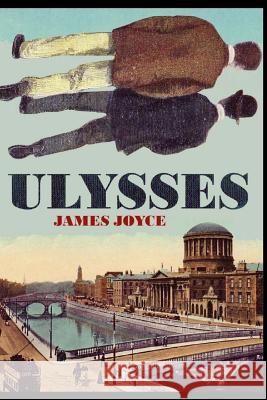Ulysses » książka
Ulysses
ISBN-13: 9781544275260 / Angielski / Miękka / 2017 / 794 str.
Ulysses
ISBN-13: 9781544275260 / Angielski / Miękka / 2017 / 794 str.
(netto: 117,60 VAT: 5%)
Najniższa cena z 30 dni: 120,09 zł
ok. 16-18 dni roboczych.
Darmowa dostawa!
James Joyce's Ulysses (1922) is, arguably, the single most influential novel of the 20th century. Written in a wide variety of styles, chock-full of an encyclopedia's worth of allusions, rife with enough puns and jokes to fill a comedian's career, the novel focuses on one day - June 16, 1904 - in the life of Mr. Leopold Bloom, a middle-aged Jewish man living in Dublin, Ireland. The groundbreaking stream-of-consciousness style allows the reader not only to trace the actions of Bloom's day, but also to follow the movement of his thoughts, to hear the inner timbre of his needs and desires, his joy and his despair. In doing so, the novel nearly breaks the back of realism (literature with a goal of portraying people and events as they exist in the real world). Ulysses is so saturated in Dublin life and in the particularities of its characters that, at times, it strains coherence. In other words, it is (as you may have heard) hard. Ulysses is best known for its stream-of-consciousness style, where Joyce forces readers to become intimately familiar with his characters' thoughts no matter how fragmentary and disoriented they may be. But style is also extremely flexible in the novel, giving Joyce the power to alter his form to fit his content. Hence, a chapter set in a newspaper office is broken up with newspaper headlines; a chapter set in a maternity ward is written in styles ranging from Old English verse to contemporary Dublin vernacular, as if language itself were going through a gestation period and being prepared for delivery; a chapter set almost entirely in Leopold's Blooms fantasies and nightmares is written out as a play script. Famously, Ulysses is structured on Homer's Odyssey, with each of the eighteen episodes in Joyce's book corresponding to a given episode in Homer's work. Joyce makes his hero, Leopold Bloom, a sort of modern-day Ulysses (called Odysseus by Homer). He casts Bloom's wife, Molly, as Penelope, and casts the aspiring artist Stephen Dedalus (first encountered in Portrait) as Telemachus. What is Joyce doing? Here, he might be trying to modernize the ancient epic, to strive to (in the words of Ezra Pound) "Make it New." Ulysses moves the epic journey from the realm of external adventures to the realm of the mind, and in doing so Joyce dares to make a heroic figure of an ordinary urban man of no apparent distinction. For all its difficulty and obscurity, what Ulysses can do is to reveal the ordinary as extraordinary.











